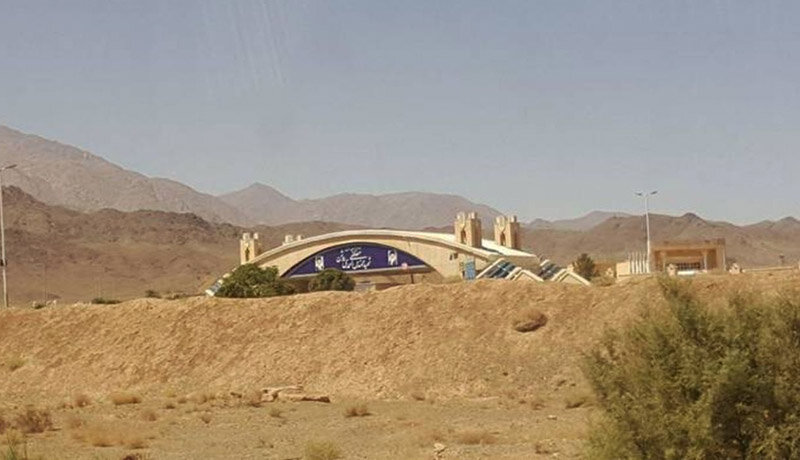Iran to replace damaged centrifuges at Natanz with more advanced ones

TEHRAN – Iran has vowed to replace damaged centrifuges at Natanz nuclear enrichment plant with advanced ones after the plant suffered a problem involving its electrical distribution grid.
Saeed Khatibzadeh, spokesman for Iran’s Foreign Ministry, said on Monday that the incident caused damages to the plant’s centrifuges, which he identified to be of IR1 type.
Speaking at a weekly press briefing, Khatibzadeh said, “All the centrifuges knocked out due to this incident were of IR1 type and they will be replaced with advanced centrifuges. The Islamic Republic now has the ability at the highest level to replace these [damaged centrifuges] with the most advanced ones.”
The spokesman was responding to a question on whether the Natanz incident would negatively affect the ongoing nuclear talks between Iran and the remaining parties to the 2015 nuclear deal, officially known as the Joint Comprehensive Plan of Action (JCPOA).
This probably was to suggest that Iran’s hand at the negotiation was not undermined.
Khatibzadeh said the incident did not undermine Iran’s nuclear capability.
He described the incident as a “trap” set by Israel to disrupt the process of lifting U.S. sanctions on Iran, saying that Iran will not fall into this “deceitful trap.”
Israel, Khatibzadeh vowed, should know that Iran will retaliate at the proper time and place.
Khatibzadeh also said the Vienna talks are not nuclear negotiations.
“What is happening in Vienna is not a nuclear negotiation. It is technical talks between Iran, the P4+1 and the European Union to lift U.S. sanctions on Iran. We once negotiated about the JCPOA and the clauses of JCPOA have been finalized and specified. There is no negotiation and what is there is the lifting of sanctions,” the spokesman said.
However, what happened in Natanz cast doubts on the future of the talks. Some Iranian observers and officials believe that the main goal of the Natanz incident was to prevent the lifting of sanctions.
Jalal Mirzayee, a former Iranian lawmaker, told state news IRNA, that “the Israeli sabotage” at Natanz was done with the purpose of pressuring the U.S. and Europe into putting pressure on Iranian officials to change their calculations.
“The sabotage in Natanz is similar to the martyrdom of Dr. Fakhrizadeh, and the Zionist regime [Israel] is doing this to disrupt the negotiation and agreement process,” Mirzayee said, noting that “in fact, this is not to put pressure on the United States and Europe, but to put pressure on Iranian officials to reconsider their calculations.”
Iran and the P4+1 are expected to meet in Vienna again on Wednesday in continuation of the meetings of the JCPOA Joint Commission.
The latest meeting of the JCPOA Joint Commission, a group comprised of Iran and the P4+1 responsible for overseeing the implementation of the deal, was held on Friday.
During the meeting, participants received a report from the two newly-established expert groups, which were put together on Wednesday to conduct technical talks over how to revive the JCPOA and what measures are needed to be done by Iran and the U.S. in this regard. One of the groups is tasked with specifying the sanctions that the U.S. should lift to revive the deal while the other is discussing how to reverse the nuclear measures taken by Iran in response to the U.S. withdrawal from the JCPOA.
Receiving a report about these groups’ technical talks was the most important agenda of the Friday meeting, the Iranian Foreign Ministry said in a statement on Friday shortly after the meeting was concluded.
Iran’s Deputy Foreign Minister Seyed Abbas Araghchi underlined during the meeting Iran’s willingness to continue “serious interactions” but said that hinges on witnessing “political will and seriousness” on part of the other sides. “Otherwise, there will be no reason to continue negotiations,” he warned.
Araghchi reiterated that the lifting of all U.S. sanctions imposed during the previous U.S. administration was a necessary step in reviving the JCPOA and that only after verification of the lifting of these sanctions Iran would be ready to suspend its remedial measures and fully return to JCPOA.
At the end of the meeting, it was agreed that the next meeting of the Commission at the level of deputies and political directors to be held next Wednesday in Vienna. The Iranian Foreign Ministry said the Wednesday meeting will immediately be followed by technical and specialized intensive negotiations in the framework of expert groups to prepare a list of nuclear and sanctions measures that should be done by all parties to revive the JCPOA.
Araghchi has said that the Vienna talks are moving in the right direction, although some points of disagreement continue to dampen hopes for a rapid breakthrough.
“The biggest obstacle is Washington's desire to maintain sanctions,” the top Iranian nuclear negotiator told Japanese broadcaster NHK.
Leave a Comment